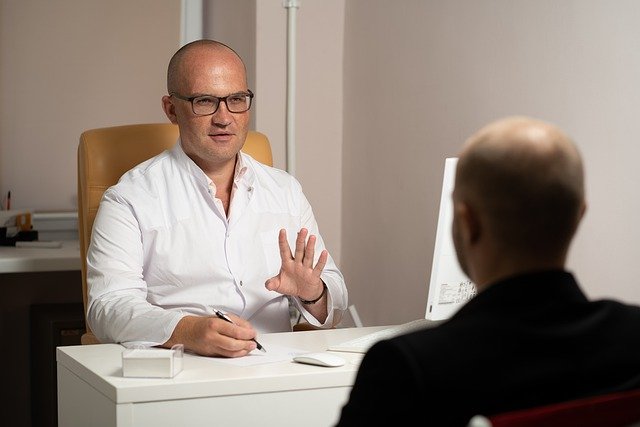People with dementia who see the same GP each time have lower rates of health complications and fewer emergency hospital admissions, researchers say.
The findings of the study led by the University of Exeter were published in the British Journal of General Practice (BJGP). Researchers analyzed more than 9,000 patient records of people diagnosed with dementia in the Clinical Practice Research Datalink.
Dementia Books & Videos on Amazon:
FREE Newsletter:
The team found that people with dementia who were consistently seen by the same GP over the course of one year were given fewer medicines and were less likely to be given medicines that can cause problems like incontinence, drowsiness and falls.
Consistent care means better health
Those seeing the same GP over time were 35 per cent less likely to develop delirium, a state of confusion commonly experienced in dementia.
Those who consistently saw the same GP were also 58 per cent less likely to experience incontinence, and almost ten per cent less likely to have an emergency hospitalization, compared to those who had the most variation in GPs treating them.
The research was conducted in anonymized patient records of people with dementia aged 65 and over in 2016, who were followed-up for one year. The study includes people who visited a GP at least three times in the previous year.
Treating dementia can be complex
Lead author Dr João Delgado, of the University of Exeter, said: “The number of people with dementia has been rising steadily and it is now one of the leading causes of death in the UK. In the absence of a cure, long-term care is particularly important.
“Treating people with dementia can be complex, because it often occurs together with other common diseases. Our research shows that seeing the same general practitioner consistently over time is associated with improved safe prescribing and improved health outcomes. This could have important healthcare impacts, including reduced treatment costs and care needs.”
Delirium (an episode of more severe confusion) is common in dementia, and patients who develop delirium are more likely to die.
Delirium and incontinence are very distressing for individuals, and require additional resources. Extra hospital admissions are a high cost for the medical system.
Real benefits for those with dementia
Sir Denis Pereira Gray, co-author and GP researcher at the St Leonard’s Practice, said: “These new findings show that GP continuity is associated with important benefits for patients.
“Whilst national policy makers have for years discouraged continuity, general practices can still provide good GP continuity through their internal practice organisation, for example, by using personal lists.”
Dr Richard Oakley, Associate Director of Research at Alzheimer’s Society said: “For the 900,000 people living with dementia in the UK, it’s likely dementia isn’t the only condition they’re getting treatment for.
“It’s clear from this study that consistently seeing the same GP has real benefits for people living with dementia — better management and treatment of conditions, and lower risk of complications like delirium and incontinence, leading to improved quality of life.
“The pandemic has put GP services under immense pressure, so while we might not be able to get consistent GP care for everyone with dementia tomorrow; policymakers should absolutely be working with the NHS to build this into their plans as we emerge from the pandemic.”
SOURCE:
REFERENCE:
- João Delgado, Philip H Evans, Denis Pereira Gray, Kate Sidaway-Lee, Louise Allan, Linda Clare, Clive Ballard, Jane Masoli, Jose M Valderas, David Melzer. Continuity of GP care for patients with dementia: impact on prescribing and the health of patients. British Journal of General Practice, 2022; BJGP.2021.0413 DOI: 10.3399/BJGP.2021.0413











